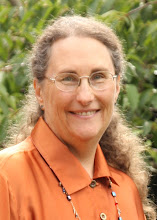Welcome to the blog for the University of Otago paper “Ministry and Society in the 21st century.” I’ll be posting links to online articles I’ve found that you may want to use to write your assignments for the paper. Or you may want to read them to get more background information on topics you’re interested in.
The topic for the second audio conference is postmodernism. I looked around on the Internet for some articles that I thought covered the topic well and revealed some of the controversies around the topic. Please feel free to post comments about which of these articles you found helpful, and what you found helpful about them, so other students will have an idea of which ones to read. In addition, feel free to email me with suggestions of other Internet resources on our topics. I’ll read the articles you suggest and post them on the blog with my comments.
Here’s a sermon written by the minister of a Presbyterian church in Canada. He does a nice job discussing modernism and postmodern and the implications for churches:
http://www.victorshepherd.on.ca/Other%20Writings/postmode.htm
An editor at Leadership Journal wrote a piece about why he wishes we would move on from talking about postmodernism. He got a firestorm of response, and the series of articles on this web page summarizes the discussion. You may enjoy the series of articles posted on this page:
http://www.christianitytoday.com/leaders/special/postmodernism.html
In this article from Relevant magazine, the author is arguing in part that the decline of the church in recent decades has come from its inability to speak into the postmodern world. See if you agree:
http://www.relevantmagazine.com/god_article.php?id=696
In this article from John Mark Ministries, the author describes the difference between postmodernism and postmodernity. See if you agree with his distinction:
http://jmm.aaa.net.au/articles/13867.htm
Chuck Colson wrote numerous articles for Christianity Today about postmodernism in the early years of this decade. In many of them, he talked about the way the church needs to resist postmodernism and fight against it. Here’s one of his columns:
http://www.christianitytoday.com/ct/2003/december/24.72.html
Here’s a response that Brian McLaren wrote to that column by Chuck Colson:
http://www.brianmclaren.net/archives/000018.html
You are quite welcome to quote from websites when you write your assignments. But you must learn to cite from website in the right form. Be sure to look at the Study and Style Guide on the Departmental website:
http://www.otago.ac.nz/theology/resources/index.html
Click on "study and style guide." On page 19 you’ll find instructions of how to cite from a website. Note that the date you downloaded the information is required. Whenever you capture an interesting quotation from a website, always note the full URL and the date. Then you’ll be able to do a good citation in your essay.
In addition, websites vary in their accuracy and level of authority. A website of a well-known journal or magazine (like Christianity Today, Relevant, or Leadership Journal) is more authoritative than a personal blog. When citing something from a website, it makes sense to say a couple words about the source so you indicate why you think it has authority and can be considered to be accurate. For example, you might write, "Brian McLaren, who has written many books on the church in the postmodern era, writes . . ." If you're citing from an article that was originally published in a magazine, don't say you got it from a website, say, "In an article in Christianity Today magazine, Chuck Colson writes . . ."
Another note on online resources. When you do an internet search on almost any topic, Wikipedia will usually come at the top of the list as a source. Wikipedia is often a helpful source to get an overview of a topic. But because it is a wiki – open source software that anyone can change – it is not a good source for academic papers. You cannot trust its accuracy. Always double check anything you find there. I read the entry on postmodernism on Wikipedia and found parts of it helpful, but I'm not suggesting to you that you read it (although you're welcome to) because I don't want you to cite it in your essay.
Wednesday, June 18, 2008
Subscribe to:
Comments (Atom)
